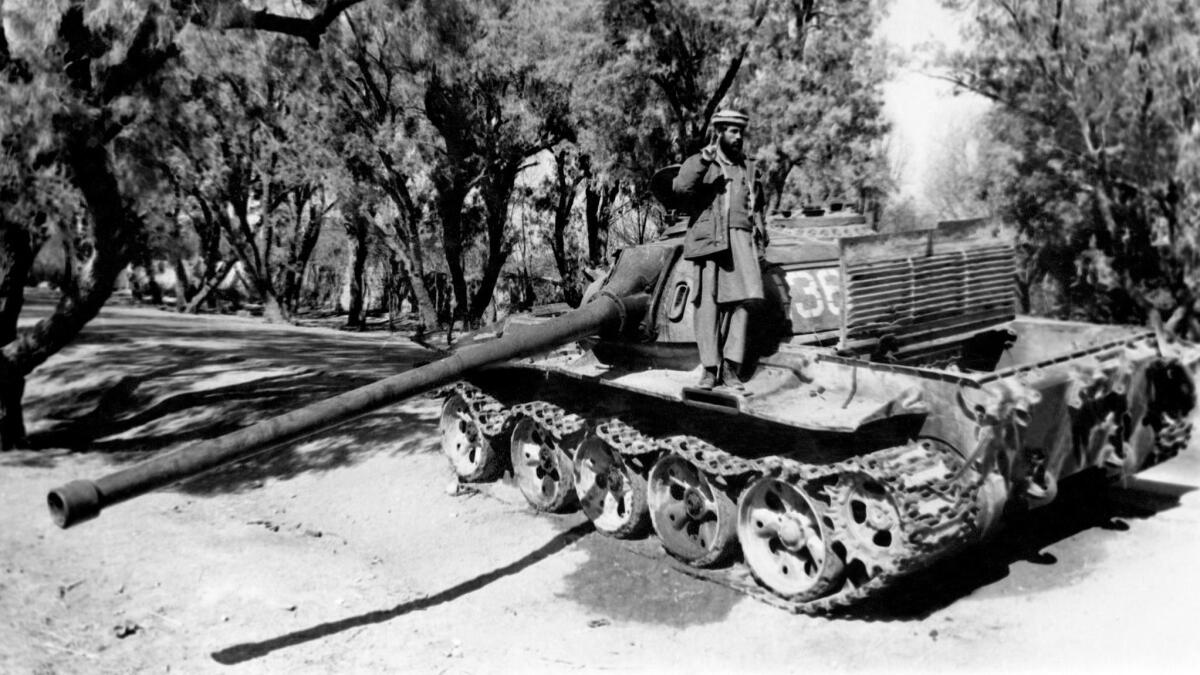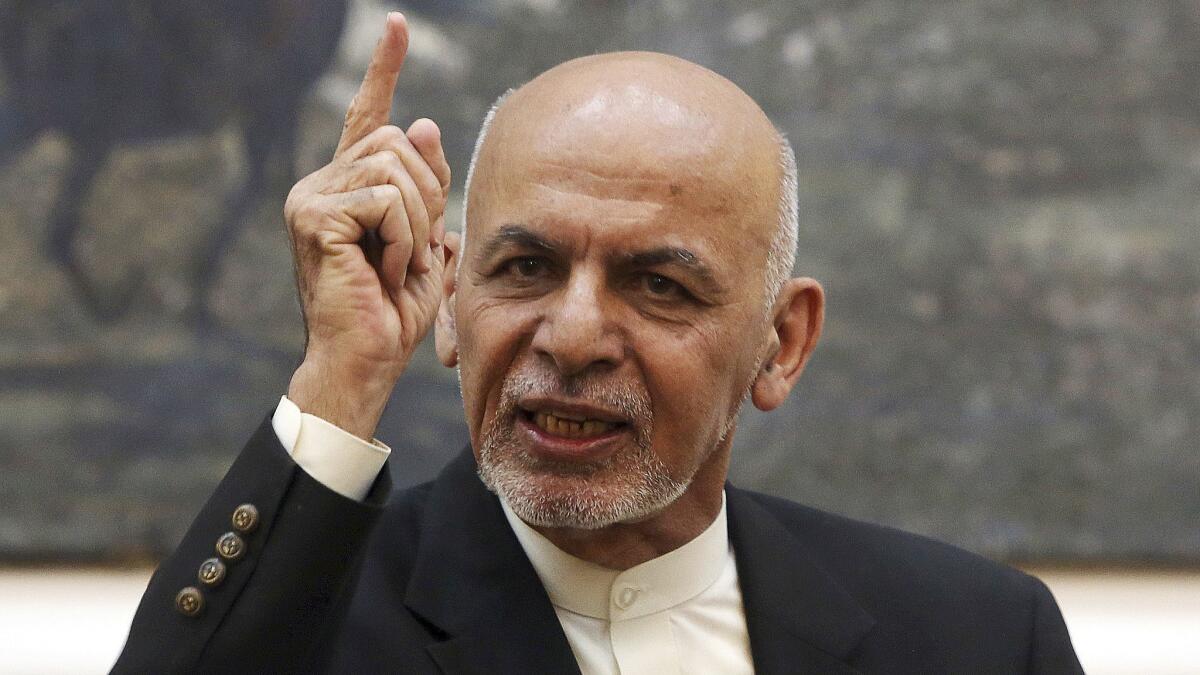Afghans offer Trump a history lesson: 1979 Soviet invasion was ‘a grave violation’

- Share via
Reporting from Kabul, Afghanistan — In a rare public break with the White House, top Afghan government officials on Thursday criticized President Trump’s praise of the 1979 Soviet invasion of their country and defended the “sacrifice of millions of Afghans” in the conflict.
During Trump’s rambling, 90-minute riff before reporters as members of his Cabinet looked on, the president on Wednesday said Moscow’s invasion — which the U.S. opposed as a violation of Afghan sovereignty and an attempt to spread communism — was justified because of the threat of terrorism from Afghanistan.
“The reason Russia was in Afghanistan was because terrorists were going into Russia,” Trump said. “They were right to be there. The problem is it was a tough fight.”
Trump’s comments not only broke with the policies of the U.S. government, which under the Carter and Reagan administrations secretly funneled arms and support to Afghanistan’s anti-Soviet forces, they also spread anger through top levels of a country where the United States still has 14,000 service members stationed.
Afghan President Ashraf Ghani issued a statement saying that dozens of countries had denounced the invasion and that Afghans fought “to liberate their holy land.”

Adding that “all U.S. presidents since” had supported the Afghan resistance that drove out Soviet forces, Ghani said his government had “urged clarification through diplomatic sources from our ally the United States.”
Afghan Foreign Minister Salahuddin Rabbani tweeted that the “Soviet occupation was a grave violation of Afghanistan’s territorial integrity” and that “any other claim defies historical facts.”
He cited the “heroic resistance & sacrifice of millions of Afghans” in a conflict that was widely seen as modern Afghanistan’s proudest achievement.
The Afghan resistance — covertly backed by the CIA — sapped Moscow’s finances and morale and is seen as one of the factors that hastened the downfall of the Soviet Union. Trump used the historical example to argue that countries should police their own regions but erroneously said that the Afghan invasion bankrupted Moscow.
It was the latest in a series of puzzling moves by Trump regarding Afghanistan, site of America’s longest war.
In two years in office, Trump has described the war as a waste of U.S. resources, then deployed several thousand more troops there, and has now authorized a desperate bid to make peace with Taliban insurgents who appear to have the upper hand against an Afghan army and police force the U.S. has spent billions to support.
Trump has also said he wants to withdraw half of U.S. troops soon, seemingly weakening the U.S. negotiating position even before talks begin. “Why are we there?” he asked Wednesday. “We’re 6,000 miles away.”
In the same monologue, Trump also maligned another friendly country, India, with wrong information about New Delhi’s development assistance in Afghanistan.
He said Indian Prime Minister Narendra Modi “is constantly telling me he built a library in Afghanistan. OK, a library.” He continued, “That’s like, you know what that is, that’s like five hours of what we spend. And we’re supposed to say, ‘Oh thank you for the library.’ I don’t know who’s using it, in Afghanistan.”
India has spent $3 billion in development assistance in Afghanistan since the 2001 U.S.-led invasion — making it the country’s fifth-largest donor — to build roads, schools and a new parliament building.
A library is not among the biggest projects, but India did finance a small library in Sar-e-Pol province, according to an 11-page booklet called “India-Afghanistan: A Historic and Time-Tested Friendship” that India’s foreign ministry republished on its website Thursday.
It was the Indian government’s only official response to Trump’s comments.
Special correspondent Faizy reported from Kabul and Times staff writer Bengali from Singapore.
Special correspondent Faizy reported from Kabul and Times staff writer Bengali from Singapore.
Shashank Bengali is Southeast Asia correspondent for The Times. Follow him on Twitter at @SBengali
More to Read
Sign up for Essential California
The most important California stories and recommendations in your inbox every morning.
You may occasionally receive promotional content from the Los Angeles Times.














